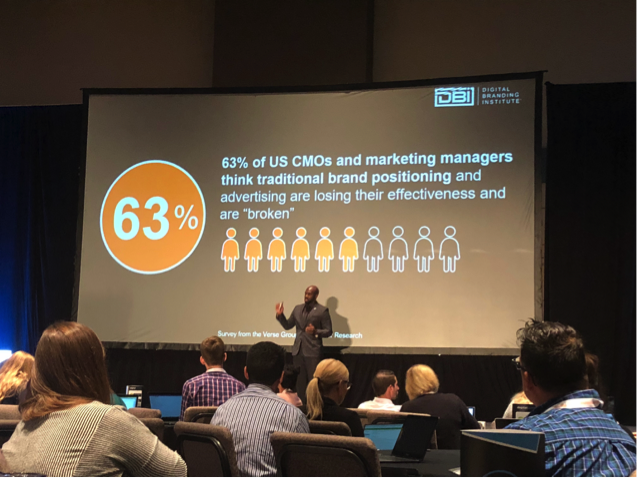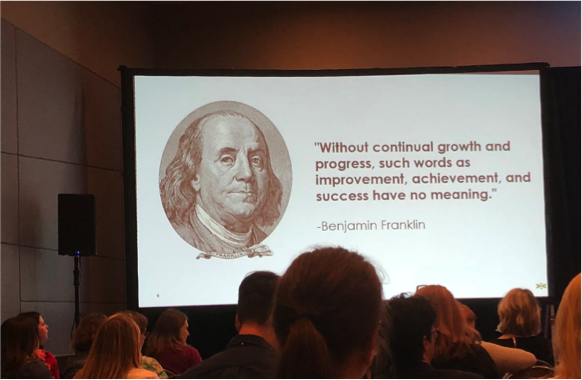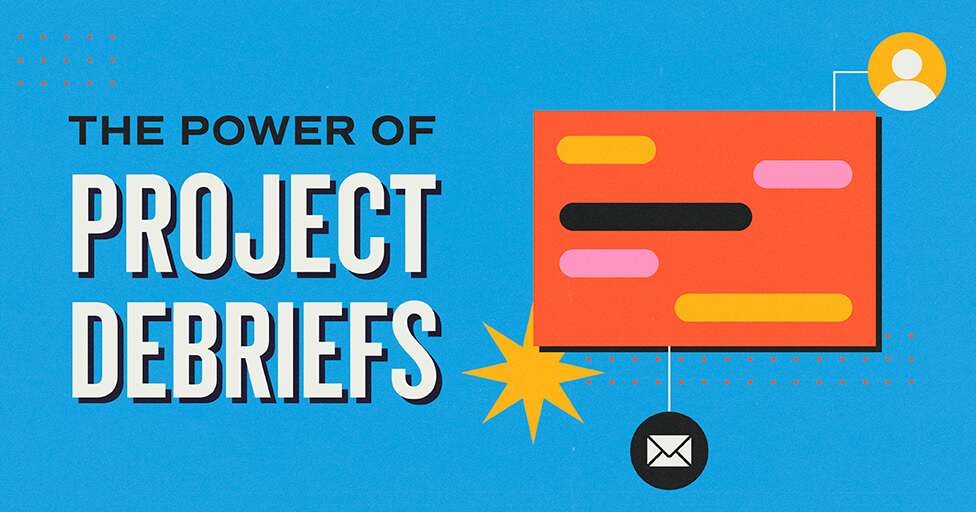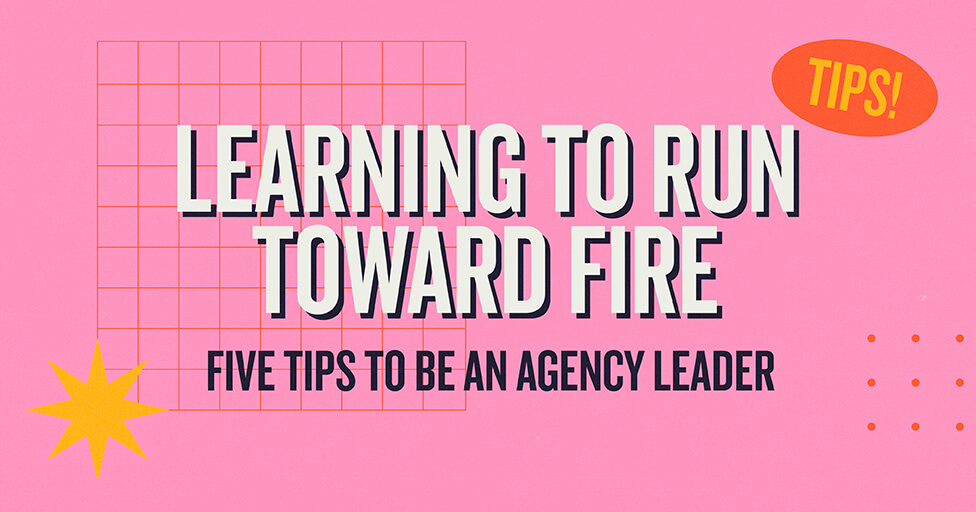
When I graduated with my BSBA in marketing in 2009 from Creighton University, they didn’t offer courses in Content Marketing. AOL was still considered a search engine (surprisingly, AskJeeves was, too. RIP 2010). Flip phones were just that…phones. And, as for social media marketing, it was still an infant idea that Mark was learning to swaddle. The latest (and likely the original) Facebook algorithm still had a profile page, and uploading photos was a feature that didn’t yet exist. In fact, I distinctly remember the day Facebook allowed users to upload photos. I said to my college roommate “Oh man, we are going to spend so much time on thefacebook” (Yes, you read that right, thefacebook). Was I right or was I right? When I got my first job, it came with a BlackBerry, and I thought to myself, “I’ve made it.”
And this was all less than 10 years ago. While these are just a few examples of what has changed over the last decade, they show that things are changing, and quickly.
In the late 2000’s, my marketing curriculum was limited to courses like Market Research and Marketing Management. While these courses are still arguably the foundation of marketing today, marketing has changed drastically over the last decade. Yes, some marketing concepts are tried, true and will likely never change. But marketing is evolving. The tools and techniques to reach our target audiences aren’t the same as what they were just a few years ago. In fact, many believe that the traditional advertising methods we learned in school aren’t effective anymore.

Today, we are not in the digital age of marketing. We are past the digital age of marketing, which is known as the post-digital age. If you blinked in the last five years (or had three babies like I did), you likely missed the digital age of marketing. What is post-digital marketing? According to Eric Yale, post-digital marketing is the necessity of doing what you say. It’s being human. It’s being helpful. It’s making life easier for consumers. What is different today than before is that digital devices have created entitled, always-on customers. The data derived from these digital devices now fuels business strategies. Doing what you say you are going to do as a brand is a must because consumers are now more powerful than ever.
Now, as marketers, we’re not just looking at marketing personas, we also need to understand consumers’ digital persona. Google is now giving rank favor for AMP because these pages load instantly. What is heck is AMP anyway? The typical buying cycle has become the modern buying cycle, where all stages of the cycle are jumbled, and the access to information consumers have is immeasurable. Step aside, Millennials, Gen Z has now risen to the forefront but who is Gen Z and what do they want from us? And, let’s be honest, the only thing scarier than Gen Z is AI. You can run, but you can’t hiiiiiiide.
As an advertising agency, it is critical that our people are as knowledgeable today as they were yesterday. Enter Kansas City Digital Summit 2018. The Digital Summit is a national conference that travels from city to city teaching the latest digital marketing trends, technologies and best practices. The conference offers over 50 sessions taught by industry experts and educators to help marketers stay ahead of changes in the field. Our agency has learned a lot from this conference in the past, so we paid the pretty penny and signed up again.
Here are a few ah-ha moments from our team.
- Maureen Boesen, Marketing Manager: “Relationships are created from information, not people. This is contrary to what I have been taught and one of the major sources of new business for our agency. However, the amount of content and access to content that people have is taking place of relationships, at least at first. Before we build a relationship with a new client or customer, they likely have all the information they need from a simple Google search. In fact, 57% of purchase decisions are made before even contacting a company.”
- Sarah Grace Nicholson, Account Coordinator: “I was really intrigued by the analysis of Gen Z and how quickly we’ve shifted from the need to understand Millennials to the needs driving Gen Z. They are highly competitive and very selective of what they put online, reverting back to their Baby Boomer/Gen X parents. They’re going the extra mile to research a brand’s social involvement, assuring the causes they align with also align with their own values before they purchase. As marketers, we need to ensure we understand Gen Z’s differences and make sure we are striving, as brands, to fit into the personal brands that Gen Z-ers are passionately working to create, rather than trying to fit them into our own.”
- Emily Choate, Senior Search Strategist: “I really enjoyed a lot of the high level sessions about search and content strategy. I always find these types of sessions inspiring and validating when speakers discuss similar obstacles I’m facing as a search strategist. However, the best, actionable takeaway I received from the Digital Summit was learning about the Keywords Everywhere Chrome extension. The extension shows search volume, cost per click, and competition data directly in search results pages, which is seriously a game changer!”
- Lindsay Martin, Account Manager: “Context is the key to connecting and unlocking growth with potential customers. The context of our product offerings consists of a lot of things—what the brand/product should look like, what channels to use and how it will look in each channel, the price, the audience or consumer segment we want to reach, the message we want the consumer to take away, and our marketplace competition. OR …our competition in the marketplace. But how many times do we, as marketers, maybe just ignore the obvious or not see the obvious elephant in the room? Or we ignore what would make our products more marketable or we just have not fully connected the dots to see what the best way to market our product actually is? April Dunford from Rocket Launch Marketing gave a great presentation on how to position your brand in a way that the audience will actually understand what you are selling and how it is relevant to them. In turn, making the customer ready to buy it sooner. Even the slight change of a product name can be the difference between getting a future customer and not getting a future customer.”
To be better marketers, we must continue to learn and grow. Even Ben agrees.

If you’re feeling overwhelmed by the rate of change in the marketing industry (and life in general), you’re not alone. For the former, MBB is here to help. (For the latter, I recommend a Xanax.)
Subscribe to our newsletter
Get our insights and perspectives delivered to your inbox.


